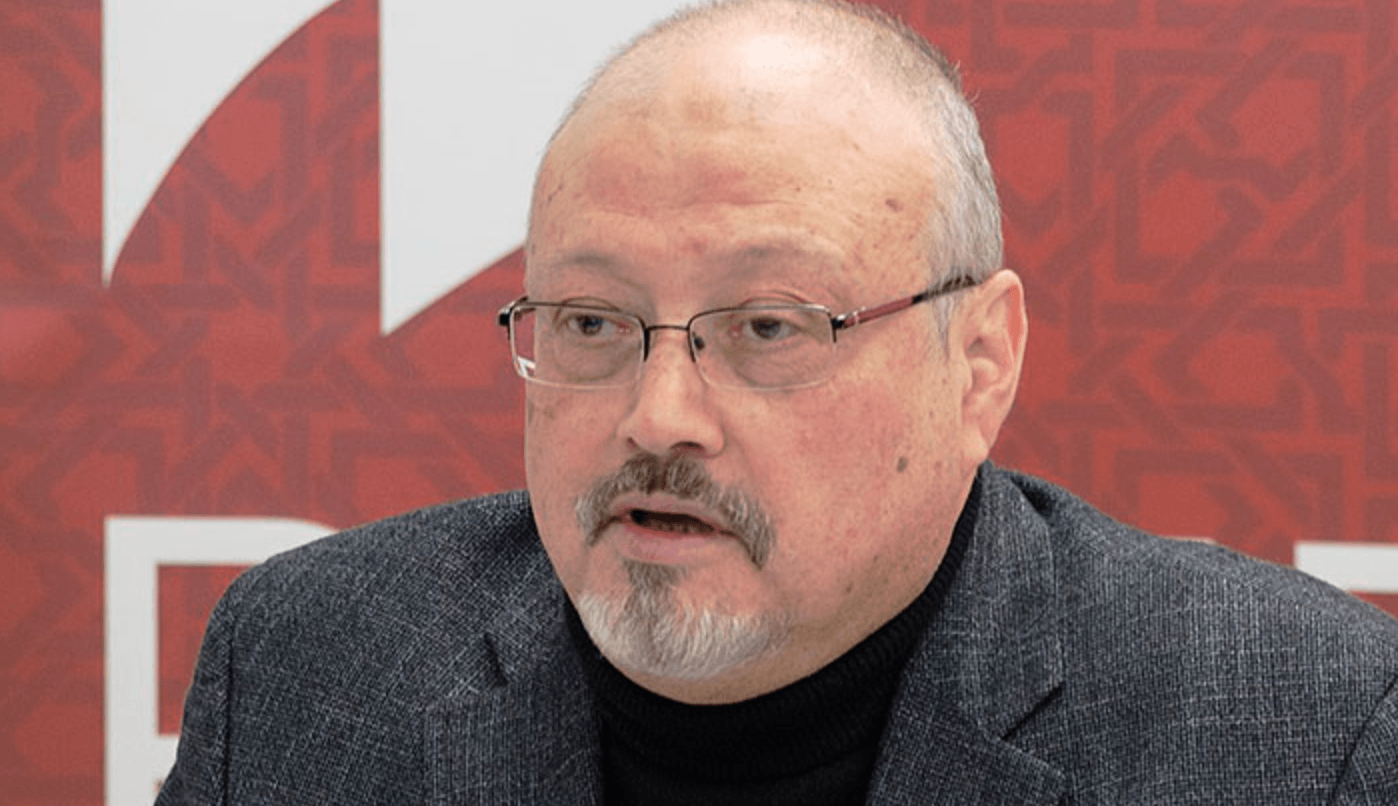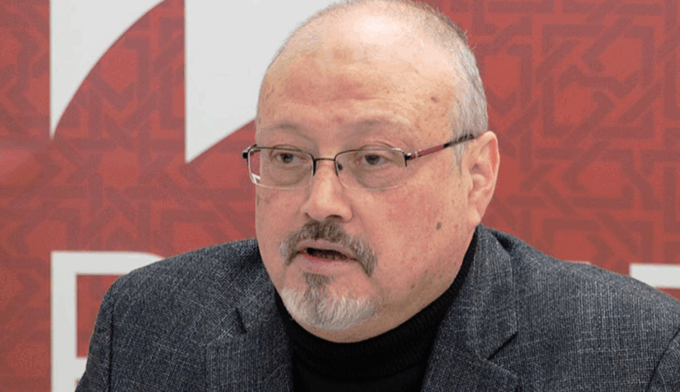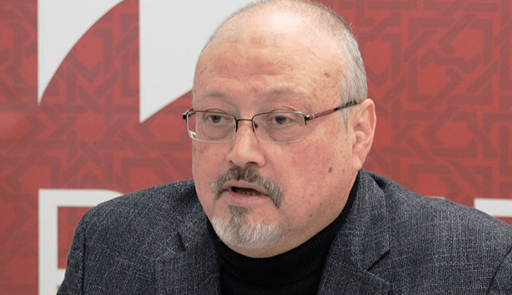

Jamal Khashoggi, image Wikipedia.
Jamal Khashoggi, a Washington Post columnist, was murdered inside the Saudi consulate in Istanbul in October 2018. Seven years later, Donald Trump received Crown Prince Mohammed bin Salman—the man U.S. intelligence concluded ordered Khashoggi’s killing—with open arms in the Oval Office. When ABC News journalist Mary Bruce asks him directly about that finding, Trump shrugs: “Things happen.”
Things happen. Journalists get slain and dismembered. Academics get imprisoned. Activists get tortured. Dissidents disappear. Independent media bows down. Judges kneel.
Political violence, the erosion of free speech, the end of democracy… Things happen.
In the words of the late psychiatrist and historian Robert Jay Lifton, this points to “malignant normality.” The process by which destructive ideologies, violent policies, and dehumanizing practices become embedded in everyday life—routinized, accepted, even perceived as normal. And in that normalization, evil not only persists but spreads.
According to PEN America’s reporting, Khashoggi sensed what was coming. Fearing for his safety, he left Saudi Arabia in September 2017 and went into self-exile in the United States, where he began writing for the Washington Post. From Washington, he continued to criticize Mohammed bin Salman’s escalating repression including mass arrests of businessmen, clerics, intellectuals, royal family members, and women’s rights activists. He warned about the rapid deterioration of free expression in Saudi Arabia and across the Arab world. “I have left my home, my family and my job, and I am raising my voice. To do otherwise would betray those who languish in prison. I can speak when so many cannot,” he wrote and spoke up.
In a May 21, 2018 column, he reflected on the government’s efforts to control the social and political narrative: “The message is clear to all: Activism of any sort has to be within the government, and no independent voice or counter-opinion will be allowed. Everyone must stick to the party line.”
He refused that line. And for that, he was killed.
Khashoggi’s murder unfolded during sweeping purges that targeted nearly every sector of Saudi civil society. Many detainees were subjected to staged and rigged trials; some described severe torture. His final column, which was sent to the Washington Post by his assistant the day after he disappeared, was a plea for free expression in the Arab world and a reflection on the Arab Spring’s unfulfilled promise. It criticized state-run rhetoric that demands unconditional obedience from citizens.
Obey, otherwise, things happen.
But we must be very clear: the phrase “things happen” does not belong solely to the Middle East or to distant authoritarian regimes. Things happen here, too. Right now. On American soil.
Senators get handcuffed by federal agents. National guards invade cities. Immigrants, including citizens, are abducted and detained. Voting rights, suppressed. Political dissent, silenced. Universities, targeted. Scholars, ousted. Books, banned. Activists, jailed. Courts tilt. Justice walks a razor’s edge. Terror takes root.
Back in 2018 Khashoggi wrote: “When I speak of the fear, intimidation, arrests and public shaming of intellectuals and religious leaders who dare to speak their minds, and then I tell you that I’m from Saudi Arabia, are you surprised?”
Fear, intimidation, arrests, public shaming. It is all happening right here, right now. Are we surprised?
Children living in poverty, things happen.
Healthcare out of reach, things happen.
Corporate corruption, things happen.
Press under siege, things happen.
Police brutality, things happen.
Hate crimes, things happen.
Mass shootings, things happen.
Climate collapse, things happen.
But here is what also happens: Information breaks through. Grassroots movements strengthen. Voices rise. Revolutions take shape. Kings lose their crowns. Empires fall.
When the moral compass resets toward justice, these things happen.
Courage is infectious, and so is radical hope.
The post “Things Happen”: Murder According to Trump appeared first on CounterPunch.org.
From CounterPunch.org via this RSS feed


